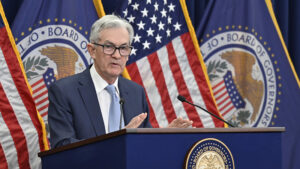The Trump effect
However, the sector started to fall in the run-up to the US election. It then lost almost 6% after it was confirmed that Donald Trump, who campaigned on a populist and protectionist agenda, will be the next president.
This means the sector was the worst performer on a one-month view to mid-November. Only IA Global Emerging Markets funds, which were caught up in the same concerns about the impact of a Trump presidency on emerging market economies, performed worse, with a 7.3% average fall.
Exactly how the asset class will fare with Trump positioned in the White House is hard to determine, especially as the president-elect is yet to confirm which of the promises he made on the campaign trail will end up as policies.
That said, Jim Cielinski, global head of fixed income at Columbia Threadneedle, argues a Trump presidency is “worrisome” for emerging market debt.
He says: “We remain defensively positioned in our emerging market debt portfolios, short duration and overweight ‘Trump hedges’ such as Russia. China has stabilised, which remains positive for EMD, but could be thrown off-course in the worst-case ‘trade war’ outcomes.”
Given this outlook, and the fact emerging market debt funds can be highly volatile – in the past 10 years, the JPM GBI-EM Global Composite Index has posted annualised volatility of 12.6%, compared with 14% in the FTSE 100 – we looked at which funds held up best in tough times for the asset class.
To do this, we focused on total returns in 2013 and 2015, when the average IA Global Emerging Market Bond fund made losses, as well as the annualised volatility and maximum drawdown over three and five years.








